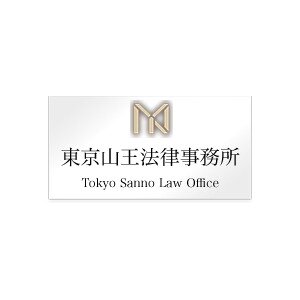Best Oil, Gas & Energy Lawyers in Japan
Share your needs with us, get contacted by law firms.
Free. Takes 2 min.
Or refine your search by selecting a city:
List of the best lawyers in Japan
About Oil, Gas & Energy Law in Japan
Japan plays a significant role in the global energy market, primarily as a major importer of energy resources. The Oil, Gas & Energy sector in Japan is characterized by its advanced technology, strategic planning, and robust regulatory environment. Given its lack of domestic energy resources, Japan largely depends on imports, making energy security and efficiency critical issues. The country is also investing significantly in renewable energy sources in response to global environmental concerns.
Why You May Need a Lawyer
Engaging with the Oil, Gas & Energy sector in Japan often involves complex legal and regulatory frameworks. You may need a lawyer in the following situations:
- Negotiating and drafting contracts for the purchase, sale, or transportation of oil and gas.
- Complying with environmental regulations and obtaining necessary permits for energy projects.
- Handling disputes related to energy contracts or property rights.
- Advising on corporate transactions such as mergers and acquisitions in the energy sector.
- Understanding tax implications and incentives related to energy investments.
- Navigating regulations and government policies affecting renewable energy projects.
Local Laws Overview
Japan's energy sector is governed by a comprehensive set of laws aimed at ensuring energy security, environmental protection, and efficient resource management. Key aspects include:
- The Basic Act on Energy Policy, which outlines Japan's energy strategies and goals.
- Environmental regulations governing emissions, waste management, and conservation efforts.
- Legal requirements for obtaining permits and licenses for energy projects.
- Regulations pertaining to nuclear energy, given Japan's historical reliance on nuclear power.
- Incentives and support measures for renewable energy development, such as feed-in tariffs.
- Competition laws directly affecting energy market operations and pricing.
Frequently Asked Questions
What is the primary source of energy in Japan?
Japan primarily relies on imports for its energy needs, especially oil and natural gas, with growing investments in renewable energy to diversify its energy mix.
Are there incentives for renewable energy projects in Japan?
Yes, Japan offers various incentives for renewable energy projects, including feed-in tariffs, grants, and subsidies to encourage investment in this sector.
How does Japan handle environmental regulations in the energy sector?
Japan has strict environmental regulations that include emissions controls, waste management standards, and requirements for environmental impact assessments for energy projects.
What are the key legal considerations for foreign companies entering Japan’s energy market?
Foreign companies must navigate complex regulations related to foreign investment, competition law, environmental standards, and secure the appropriate permits and licenses.
How can I resolve a dispute in an energy-related contract in Japan?
Disputes can be resolved through negotiation, mediation, arbitration, or litigation, depending on the contract terms and the nature of the dispute.
What role does nuclear energy play in Japan’s energy strategy?
Nuclear energy has historically been a significant part of Japan's energy strategy, though its role has been reevaluated following the Fukushima disaster, with increased focus on safety and alternative sources.
What are feed-in tariffs?
Feed-in tariffs are government policies designed to encourage investment in renewable energy by offering long-term contracts and guaranteed pricing for electricity generated from renewable sources.
How is the energy sector regulated in Japan?
The energy sector in Japan is regulated by various government bodies, including the Ministry of Economy, Trade and Industry (METI), which oversees policy and regulations.
What permits are needed for starting an energy project in Japan?
The needed permits vary depending on the type of project but generally include environmental assessments, construction approvals, and operational licenses.
Does Japan offer tax benefits for energy investments?
Yes, Japan provides tax benefits, including deductions and credits, aimed at encouraging investments in energy-efficient technologies and renewable energy projects.
Additional Resources
For further information and assistance, consider consulting the following resources:
- The Ministry of Economy, Trade and Industry (METI) - Oversees Japan's energy policies.
- Japan Oil, Gas and Metals National Corporation (JOGMEC) - Offers support and technical assistance for oil and gas projects.
- The Japan Renewable Energy Foundation - Provides information and advocacy for renewable energy development.
- The Agency for Natural Resources and Energy - Responsible for energy administration and regulation.
Next Steps
If you need legal assistance in Oil, Gas & Energy in Japan, consider the following steps:
- Conduct preliminary research to understand your legal needs and the specific issues you face.
- Seek referrals or search directories for qualified lawyers specializing in oil, gas, and energy law in Japan.
- Prepare a list of questions and relevant documents to discuss with potential legal advisors.
- Schedule consultations to assess the expertise and compatibility of legal advisors.
- Select a lawyer with experience and a track record in handling cases similar to yours.
Engaging with a knowledgeable lawyer can help guide you through the complexities of the Japanese energy sector, ensuring compliance and protecting your interests.
Lawzana helps you find the best lawyers and law firms in Japan through a curated and pre-screened list of qualified legal professionals. Our platform offers rankings and detailed profiles of attorneys and law firms, allowing you to compare based on practice areas, including Oil, Gas & Energy, experience, and client feedback.
Each profile includes a description of the firm's areas of practice, client reviews, team members and partners, year of establishment, spoken languages, office locations, contact information, social media presence, and any published articles or resources. Most firms on our platform speak English and are experienced in both local and international legal matters.
Get a quote from top-rated law firms in Japan — quickly, securely, and without unnecessary hassle.
Disclaimer:
The information provided on this page is for general informational purposes only and does not constitute legal advice. While we strive to ensure the accuracy and relevance of the content, legal information may change over time, and interpretations of the law can vary. You should always consult with a qualified legal professional for advice specific to your situation.
We disclaim all liability for actions taken or not taken based on the content of this page. If you believe any information is incorrect or outdated, please contact us, and we will review and update it where appropriate.
Browse oil, gas & energy law firms by city in Japan
Refine your search by selecting a city.

















